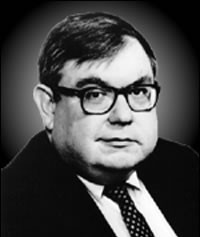 Samuel T. Francis
Samuel T. Francis
Championing
Western Civilization
and the great legacies of
Sam Francis and Joe Sobran
and their allies
 Joseph Sobran
Joseph Sobran
FGF Op-Ed
THE CONFEDERATE LAWYER
February 28, 2019
Medicare for No One
by Charles G. Mills
Fitzgerald Griffin Foundation
Front Royal, Virginia — The left wing of the Democrat Party wants “Medicare for Everyone,” which is the economic equivalent of “Medicare for No One.”
Medicare for everyone would mean that the government would pay all, or at least 80 percent of all, of the cost of medical care for everyone — the 17-year-old on his first job as well as the retired person who has contributed for 40 years to Medicare.
Medicare is a program in which the government takes money from the gainfully employed and puts it into a fund to pay for the medical needs of the elderly retired. It was created in 1965 because elderly persons were the least able to pay for their medical needs. This situation arose because during World War II the government tried to freeze wages; in response, employers resorted to fringe benefits to attract workers. Employment-based medical insurance was a popular benefit that was particularly beneficial to labor unions, when they could make money administering it.
Because the retired elderly were much less likely to have medical coverage than those still employed, the Johnson Administration created Medicare, the first government medical insurance program for anyone not employed by the government.
The amount needed to finance this scheme would be approximately equal to the entire federal budget.
Although like most government programs, Medicare did not work precisely as planned, it did achieve two goals. It made it possible for most people ages 65 and older to get fairly good medical treatment, and it required workers to contribute in advance to the cost of their medical needs after retirement. It has been successful, at least for now, in achieving these two goals despite bad assumptions that life expectancy would increase less than it did and that population growth would not collapse.
Medicare for everyone would mean that the government would pay all, or at least 80 percent of all, of the cost of medical care for everyone — the 17-year-old on his first job as well as the retired person who has contributed for 40 years to Medicare. The amount needed to finance this scheme would be approximately equal to the entire federal budget. All of the fanciful sources of savings from such a program (such as that the expenses of administering the program and indeed the entire health insurance industry would both vanish) would hardly cover a small percentage of this amount.
Maintaining universal coverage for contributors and non-contributors alike, however, would quickly deplete the Medicare Trust Fund. The decades-old promise to workers that their mandatory payments for Medicare would be used to provide medical care to the elderly would be broken.
Initially, such a scheme could be financed in part from the existing Medicare Trust Fund, mostly contributed by workers in the hope that it would be used to finance their health care in their old age.
Maintaining universal coverage for contributors and non-contributors alike, however, would quickly deplete the Medicare Trust Fund. The decades-old promise to workers that their mandatory payments for Medicare would be used to provide medical care to the elderly would be broken.
Once that fund is exhausted, the only source to pay for the new Medicare would have to be major inflation. Witch-doctoring by the Federal Reserve System to “expand the money supply,” that is, to create more fake money, would only inflate the actual, and just, cost of medical care along with virtually everything else.
Financing health care for everyone out of a fund contributed over years by the now elderly would violate two basic moral principles: Thou shalt not steal and Pacta servanda sunt (Agreements are to be kept).
Financing health care for everyone out of a fund contributed over years by the now elderly would violate two basic moral principles: Thou shalt not steal and Pacta servanda sunt (Agreements are to be kept). Merging Medicare into a sort of Mega-Medicare — most of whose beneficiaries have never contributed to it — would steal the contributions that elderly people have made and break the agreement that was the basis of their support for Medicare. Erasing their earned status would be a huge injustice to them.
Medicare for all would reduce the elderly to the same status as everyone else, despite the payments they would had made, meaning that there would be no actual status as a Medicare recipient – in other words, Medicare for no one.
In addition, those who had really superb medical insurance as a fringe benefit from their jobs would lose it.
Finally, once the trust fund is exhausted, the damage caused to the value of everyone’s money would spread the injustice to the whole population.
###
Copyright © 2019 by the Fitzgerald Griffin Foundation. All rights reserved. This article may be reprinted if credit is given to Charles G. Mills and fgfBooks.com.
Charles G. Mills, author of The Confederate Lawyer, is the Judge Advocate Emeritus (general counsel) for the New York State American Legion. As a New York lawyer, he has been arguing cases for fifty years in federal courts and in all levels of the New York courts.
Help the Fitzgerald Griffin Foundation in its mission to publish the writings of Charles G. Mills and other great writers. Give a tax-deductible donation to FGF online.
Or send a check to: Fitzgerald Griffin Foundation344 Maple Avenue West, #281
Vienna, VA 22180
1-877-726-0058
publishing@fgfbooks.com
Or call toll-free at 1-877-726-0058 to donate by phone. For more information, write to Fran Griffin at fgf@fgfBooks.com